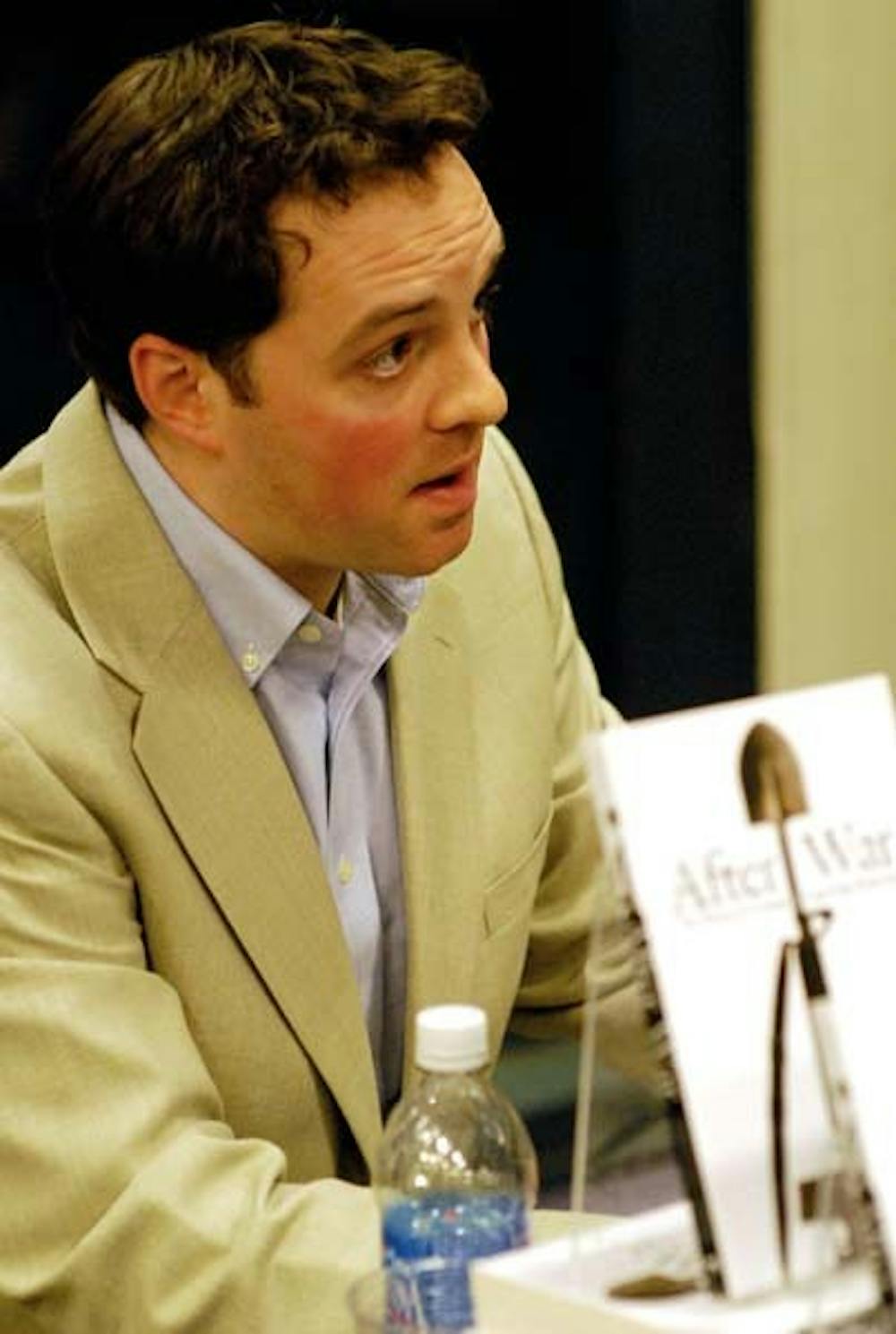
Amidst all the media attention regarding the war in Iraq, there exists a myriad of differing opinions on how to bring stability to the nation.
Chris Coyne, author of After War: The Political Economy of Exporting Democracy, provided a fresh perspective on the United States' foreign policy at the Penn Bookstore yesterday evening.
Coyne, an assistant professor of economics at West Virginia University, considered the issue of exporting democracy from an economic standpoint. Most other contemporary viewpoints are from historical, political science or public policy perspectives.
"Reconstruction at its core is an economic problem," Coyne stated. "Without economics, you really can't understand what's happening."
Coyne first became interested in the issue of exporting democracy when he examined the reconstruction efforts in Iraq and Afghanistan. "I realized how economics fit into the issue," Coyne commented. "I also realized that economists really hadn't talked about it."
In After War, which was released on November 19th, Coyne analyzes the U.S.' past efforts at democratization and provides an alternative course of action for the future.
He believes U.S. efforts are hindered by two types of constraints - internal constraints, such as culture, and external constraints, such as U.S. political institutions. It is these constraints, Coyne argues, that "make failure more likely."
Considering these obstacles, Coyne believes the U.S.' military occupation of countries like Iraq and Afghanistan is the wrong approach to encouraging democracy.
"There's a fundamental contradiction when you say, 'I'm going to give you freedom, but I'm going to impose it on you,'" Coyne remarked.
In his book, Coyne offers several alternative courses of action, ranging from colonization of developing democracies to peacekeeping efforts in these countries.
However, his approach is a combination of non-intervention and free trade. Free trade, Coyne argues, is not just an exchange of goods--it is also an exchange of ideas. If the U.S. wants Western ideas to take hold, it can use free trade to spread them.
In regards to Iraq, Coyne acknowledged the difficulty of transforming the country into a liberal democracy.
"It's not that it's impossible for it to change. It just won't happen in the short run," he said. "The best we can do is to create some sort of stability."
The Daily Pennsylvanian is an independent, student-run newspaper. Please consider making a donation to support the coverage that shapes the University. Your generosity ensures a future of strong journalism at Penn.
DonatePlease note All comments are eligible for publication in The Daily Pennsylvanian.







